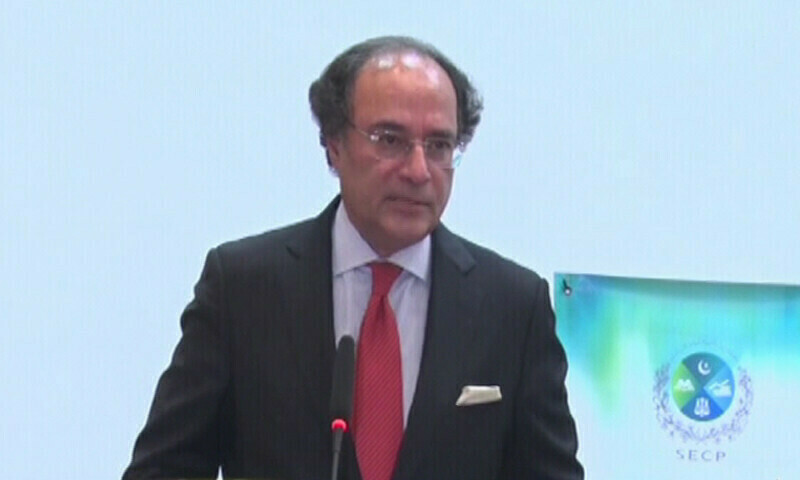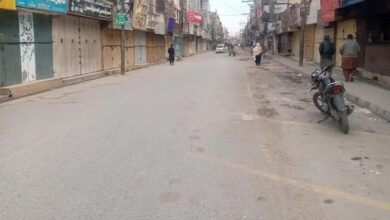Annual Deaths Due to Improper Use of Medicines in Pakistan Reach 500,000
Experts Highlight the Absence of Qualified Pharmacists in Hospitals and Pharmacies

Karachi: Over 500,000 people in Pakistan lose their lives every year due to medical errors, particularly the improper use of medicines, according to health experts. They revealed that only 5% of pharmacies in the country have trained and certified pharmacists, while half of the hospitals operate without pharmacy experts.
These alarming figures were discussed at the first Medication Safety Conference, organized by Roshan Khidmat Pharmacy Services in Karachi. Health professionals, pharmacists, and leaders from the pharmaceutical industry gathered to highlight the grave consequences of operating medical stores and pharmacies without qualified pharmacists and the dangerous effects of incorrect drug use.
Asim Rauf, CEO of the Drug Regulatory Authority of Pakistan (DRAP), acknowledged that while improper drug use is a global issue, the exact scale of the problem in Pakistan remains unclear due to underreporting. He emphasized that doctors are not adequately trained to prevent medication misuse, while pharmacists have the capability to mitigate such harm. Rauf stressed that no hospital or pharmacy should operate without a pharmacist, aligning with World Health Organization (WHO) recommendations to ensure the safe use of medicines.
He urged medical professionals to identify adverse reactions and medical issues related to medication use in order to strengthen pharmacovigilance systems and prevent deaths caused by improper drug use.
Sayed Jamshed Ahmed, Director of Roshan Khidmat Pharmacy Services, criticized the state of pharmacies in Pakistan, revealing that out of 60,000 pharmacies across the country, only 3,000 have qualified pharmacists. “The remaining 95% of pharmacies are run by untrained staff who often dispense the wrong medications, leading to fatal outcomes,” he said, calling for a legal ban on operating pharmacies without a qualified pharmacist.
Ahmed also highlighted that Roshan Khidmat pharmacies provide quality medications under the supervision of certified pharmacists, ensuring correct dosing and usage for patients.
Abdul Latif Shaikh, former Director of Pharmacy Services at Aga Khan University Hospital, pointed out that handwritten prescriptions by doctors often lead to errors. “Untrained staff frequently dispense incorrect medications due to illegible prescriptions, resulting in fatalities,” he added, advocating for the use of safe raw materials and error-free reporting of mistakes in drug preparation.
Dr. Saqib Ansari, Director of Medical Services at Roshan Khidmat, suggested introducing a one-year paid internship program for pharmacists. “Pharmacists have proven their role in reducing death rates in hospitals. Instead of seeking opportunities abroad, they should serve their country,” he said, adding that Roshan Khidmat hospitals are ready to provide such opportunities.
Sheikh Qaiser Waheed, a representative of the Pakistan Pharmaceutical Manufacturers Association (PPMA), expressed concern that 90% of pharmacists, especially women, leave the profession after marriage or avoid working. He urged parents to encourage both their sons and daughters to pursue a career in pharmacy after completing their education.
Executives from the National Institute of Cardiovascular Diseases (NICVD) and Tabba Heart Institute also shared their strategies for the safe use of medications, particularly for heart patients, highlighting ways to avoid harmful drugs.
Senior doctors, including Professor Abdul Malik and Dr. Azeemuddin, underscored the critical role of pharmacists in improving patient outcomes.
Dr. Zahid Latif, Chairman of the Roshan Khidmat Foundation, reiterated the organization’s commitment to ensuring access to healthcare services and called for collective action to address the challenges of medication safety.
The conference concluded with a strong call to make the presence of qualified pharmacists mandatory in pharmacies and hospitals to reduce medical errors and save valuable lives.






